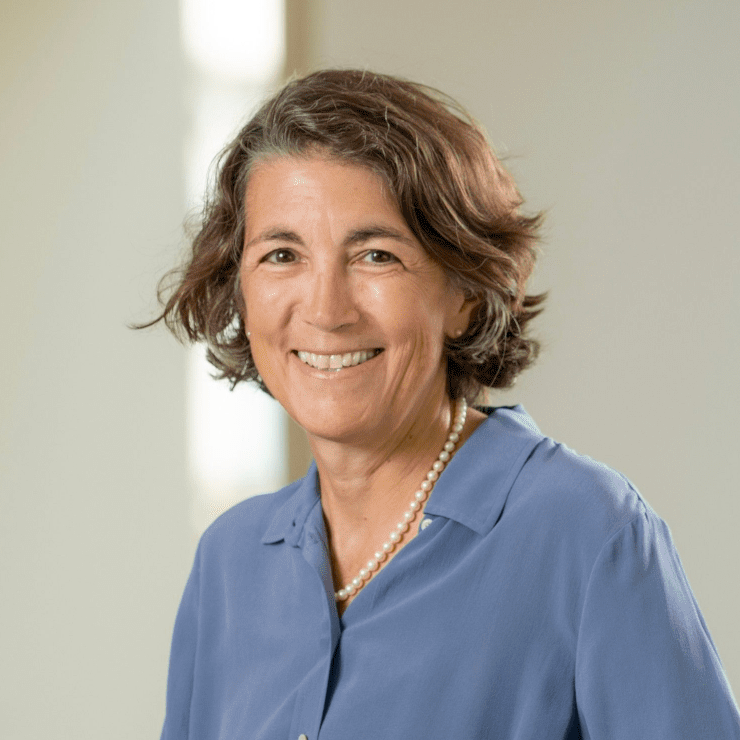
Kathryn B. Kirkland, MD
Infectious Disease Speciality
Dartmouth Hitchcock Medical Center
A gruff farmer sits at the bedside holding the hand of his dying wife of 65 years. A young woman faces cancer, angry it’s robbing her of the chance to fully experience life. Stunned parents grieve for their son who sustained a traumatic brain injury while skiing. Each has a story. And Dr. Kathryn Kirkland is there to listen.
“Compassion is probably best defined by its recipient. Different people have different needs,” said Dr. Kirkland, Section Chief and Director of Palliative Medicine at Dartmouth Health (DH). “I try to set aside my own assumptions and perspectives to create space for others to share their stories so that I can understand what’s important to them, how they make sense of the world, and how I can best help.”
Dr. Kirkland’s commitment to the value and practice of narrative medicine shows up in all her roles, from provider to teacher, and to well-respected leader. Her multidisciplinary team often engages in writing exercises to practice taking multiple perspectives. In the process, they increase self-awareness, curiosity, and tolerance for uncertainty.
“I watched with wonder as she met patients, families, and providers where they were—and through exploring the meaning of words and phrases—unpacked treasures she could use to guide others,” said a colleague.
She is a fierce advocate for the use of plain language during serious illness conversations,recognizing the critical role of these discussions in assuring that patients and families avoid missed opportunities—whether it’s spending time differently or making choices to protect themselves from interventions that aren’t aligned with their values or achievable goals.
A visionary leader at Dartmouth Health Dr. Kirkland has also been a force for quality improvement initiatives and systems-level change. She has encouraged her team to be mindful of historical inequities in healthcare and to work to ensure that everyone has access to the best care possible. Many patients in Northern New England are socioeconomically disadvantaged. Some have trouble affording gas for the trip to the palliative care clinic. During the COVID-19 pandemic, Dr. Kirkland and her team accelerated the development of their telehealth program, creating more equitable access to high-quality care in underserved communities.
With her instinct to look toward the larger community they serve, Dr. Kirkland also helped design the first Walk of Remembrance to honor loved ones who have died. It was held in the community at dusk with musical accompaniment, candles, printed verses and care team members present. It was a deeply meaningful demonstration of the importance of taking time to grieve and remember.
“Compassion takes the form of being fully present, and holding space for and bearing witness to, and even absorbing the emotion of others. I often describe this part of our work as being a sponge,” said Dr. Kirkland. “We can take on others’ heaviness; help to carry it for a period. But to be therapeutic over time, to those we serve, we need to recognize that their heaviness is not ours, and to squeeze ourselves out so that we are able to take actions to help, and so that we can be ready to absorb more when needed. And to be sustainably compassionate to others we need to extend this kind of compassion to ourselves.”